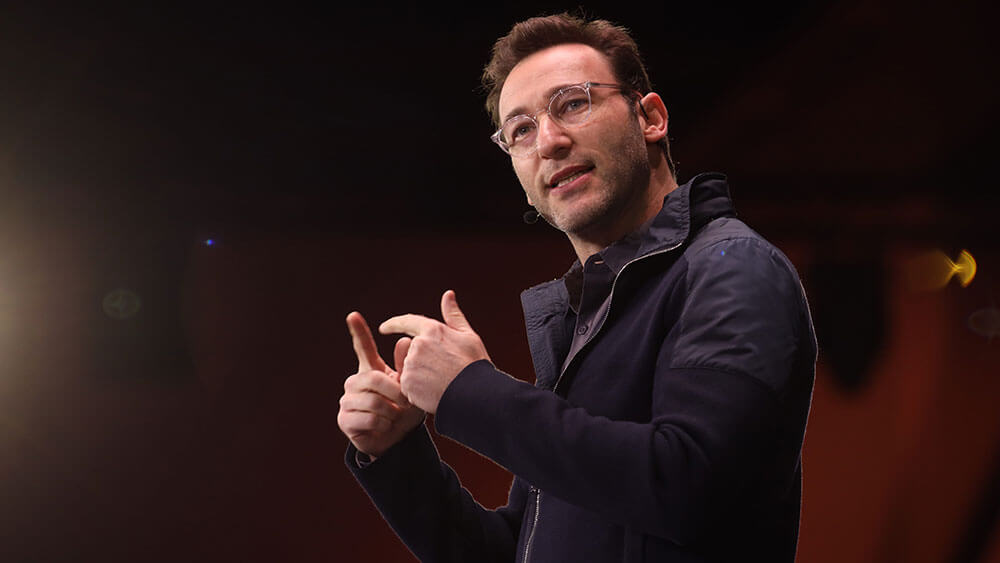
Simon Sinek opens the Convening Leaders 2020 Main Stage program Monday. (Jacob Slaton Photography)
Business is not a finite game like baseball or football with a winner at the end of the match. As Simon Sinek — whose “How great leaders inspire action” is the third most-viewed TED Talk of all time — told the audience at Monday’s Main Stage presentation sponsored by Visit Detroit, it’s an infinite game with unlimited horizons, no end, and no one person or business declared a “winner.” Sinek’s presentation “The Infinite Game” took its name from the title of his most-recent business book.
“We overuse things like sports analogies,” he told the audience, “when we talk about business. Like, ‘It’s fourth and goal, we have to do this’ — there’s no winning here.”
That requires a particular kind of mindset, in which five important practices is key:
- Advance a just cause. Your cause should resonate so much with employees that they are willing to sacrifice their own interests to advance it.
- Build trusting teams. By creating an environment in which employees feel safe, leaders enable them to be the best version of themselves.
- Study your worthy rivals. There are many players in the infinite game whose strengths can reveal your weaknesses and inspire you to improve your own performance.
- Prepare for existential flexibility. Be ready and able to make profound strategic shifts to better advance your cause.
- Demonstrate the courage to lead. Think big and be brave — consider drugstore chain CVS’ decision to stop selling cigarettes.
Sinek acknowledged that these five practices are all “unbelievably difficult” to put into action — but the long-term results are worth it, he told the Convening Leaders audience.
“It is much easier to simply keep giving people arbitrary goals and arbitrary dates with arbitrary numbers and bonus them when they hit those goals and just keep repeating and repeating and repeating — except that it sucks the life out of us,” Sinek said during his presentation. “Do that for a bunch of years and you start wondering, ‘Is it worth it? What does it all mean? Does my life, does my work, have meaning or purpose?’ It’s much harder to give people a just cause, to make decisions to advance that cause. Trusting teams? Oh, what a pain. I have to worry if someone is doing well or growing as an individual at work? So much easier to just hire and fire, willy-nilly. But over the course of time, that will destroy the culture of that company and destroy trust and cooperation. It might be easier, but it’s only a finite strategy.”
At the end of his presentation, Sinek spoke with Convening Leaders moderator Holly Ransom, who asked him to share with the audience one thing to help shape their year ahead. “Take better care of each other,” he said, without a pause. Bookstores have self-help sections, he said. Why aren’t there any “help each other sections?”

